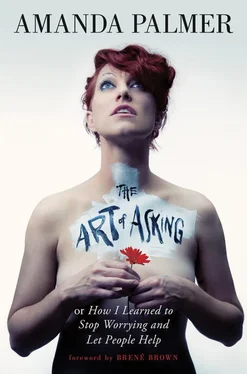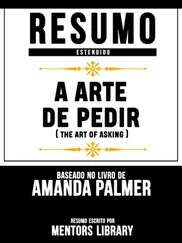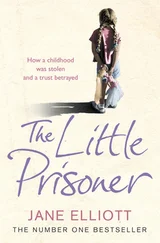I fell into the crowd at every event, talked late into the night over wines and beers, and freely discussed what was on my mind. I got pulled aside a lot, told a lot of dark stories, held (and was held by) a lot of people. Arriving at a house party in the carpeted basement rec room of a family home in Ashburn, Virginia, I asked my party host if there wasn’t, perhaps, a giant closet available. I explained to the fans that I’d played a show at Lincoln Center in New York City the night before and been soundly clocked on the head by a metal lighting rig pole that hadn’t been securely fastened, that I’d sustained a minor concussion and was going to need a cuddle—preferably a horizontal one. We dragged a futon into a giant walk-in closet, which was stocked with three racks of theatrical dresses and costumes.
A bunch of musicians had brought their instruments along to my party, so after taking requests for an hour or so, I invited them all to join me in some impromptu Nirvana covers—moshing included. I then announced I was hitting the closet, leaving the party to happily rage in my wake. I figured it’d take about two hours to get quiet time with everyone if they joined me in the closet one at a time. I misjudged: I was in there for four hours—but, man, I heard some stories. It was like Spoon River Anthology live. By the end of the night I had heard about two impending divorces, about the deepest fears of a nine-year-old girl (the child of one of the guests), and about losses secretly mourned: the deaths, the cancers, the miscarriages, the abortions, all the secrets they carried beneath the sheen of the dancing and mayhem outside the closet.
I arrived one night at a remote house in the woods, a few hours outside San Francisco, filled with high school kids and their parents. Bill was the dad who’d organized the party, and he welcomed me and my friend Whitney, who had driven me to the party, like long-lost family members into the already-jubilant festivities. Home-cooked food abounded, homemade beer flowed, and everyone sat together on the living room floor, playing instruments and sharing songs. In the kitchen, Whitney and I agreed that we were experiencing a classic case of Family Envy. How was it possible that all these seventeen-year-olds wanted to HANG OUT with their parents?
I took my plate of cake and fruit outside onto the porch, smelling the redwood trees and watching the kids take turns igniting a ten-foot-tall metal sculpture that blew fire out the top. I talked with Bill, the Perfect Dad.
His teenage daughter had died the year before. He showed me her paintings. He told me the party was for her, in a way; it was a celebration of her life. Later in the night, I played a song called “Lost”—which was on the Kickstarter record the party had helped to fund—on the living room piano while the entire gathering, young and old, linked arms and formed a kick line, singing along. I couldn’t believe they all knew the words.
It all felt so real.
• • •
The Kickstarter album had taken a few months to record; Jherek, Chad, Michael, and I spent a solid month in Melbourne between practice rooms and a recording studio bringing my preciously hoarded songs to life in full-band color. Only one song was recorded on solo piano (“The Bed Song,” which took at least two dozen takes to get right); the rest were awash with accompaniment, created by all three members of the band, who brought their sounds and structural ideas to the table. Michael programmed the drum loops. Chad spent hours finding the right synthesizer sounds. Jherek created beautiful string-and-horns arrangements for five of the songs and we hired local musicians to come into the studio for a few days. We twittered for a glockenspiel at one point. I named the album Theater Is Evil , which I changed to Theatre Is Evil (the British spelling) by a popular demand that arose the day I announced the album title on Twitter, and the Brits and Americans took up arms against one another. No bloodshed was necessary: they took a vote, and the British won.
A few weeks before the album was officially released in stores and hit the fans’ mailboxes, the whole band and road crew of five embarked on a mini-tour to deliver the Kickstarter art parties we had sold, which were backer-only events limited to two hundred and fifty people held in strange little galleries, pop-up art spaces, and small clubs. The community would commune, the band would play a special acoustic set, and the original album art would be displayed on the walls. I’d hired about thirty-five painters, sculptors, and photographers—mostly friends of mine—to create work inspired by the lyrics of the songs. Every artist was paid $500 per piece of artwork, and we shipped all the art to the parties, which were held in New York, Berlin, LA, San Francisco, Boston, and London. We put together a variety of gift bags for the attending backers that included blindfolds, surprise CDs, custom stationery, and in most cities, a locally purchased used book. The morning of every art party gig I popped into a used bookstore, buying about three hundred used books (it felt like a giant supermarket sweep) and hauling them over to the venue.
A few days before the first art party, I got the random idea to let the fans draw on me—I’m never sure where these ideas come from—and texted my assistant, SuperKate, to buy a package of markers to pass around. Washable if you can find them, but maybe do some tests. I’ll probably be sweaty, it’s summer.
The people in those rooms were my fan-family, I had faith in them. They’d trusted me to deliver an album, and letting them draw on my naked body was a gesture to show that I trusted them right back. At a couple of the parties, I prepared to strip but decided not to if the winds in the room just didn’t feel quite safe enough. We tried different drawing utensils on different nights: one of the first nights was kind of a disaster since we could only find tiny, cheap drugstore markers that didn’t write well on clammy flesh. Everybody tried their best to draw on me, but it mostly felt like being stabbed by fifty pointy little forks. We all had a sense of humor about it. One night we used paintbrushes. Another night we tried finger painting. That was interesting.
Every one of those nights—with my arms wide, closing my eyes and letting the fans draw on my body—felt like a final exam in trust.
There was that feeling again, the same one I’d had standing in front of Felix and Michelle’s doorbell at midnight: an electrifying combination of fear and a tenacious, underlying trust that refused to take no for an answer.
It reminded me of the shiver you get in the split second after leaving the edge of a diving board, knowing that your every pore is about to experience a shocking, full-body sensual assault: you brace… with joy. Nakedness with strangers is such a powerful feeling, even when— especially when—there’s no sex involved. I squeezed my eyes shut, outstretched my arms, much like I had done as The Bride, and felt every vulnerable inch of flesh exposed to the room. Every paintbrush, finger, or marker that touched my skin—even if it hurt or was shockingly cold—felt like a loving caress. Some people didn’t dare venture away from my arms; some happily drew designs right on my tits and outlined my pubic triangle with flowers. I laughed and allowed them to decorate with abandon.
It was a question to the crowd, really, in the form of my own naked body.
I trust you this much .
Should I?
Show me .
• • •
I took a short break from touring to do some yoga. There was barely any cell service at the retreat, but I walked up a hill one day to wave my phone at the sky and download a few days’ worth of text messages. One was from Anthony.
Читать дальше












